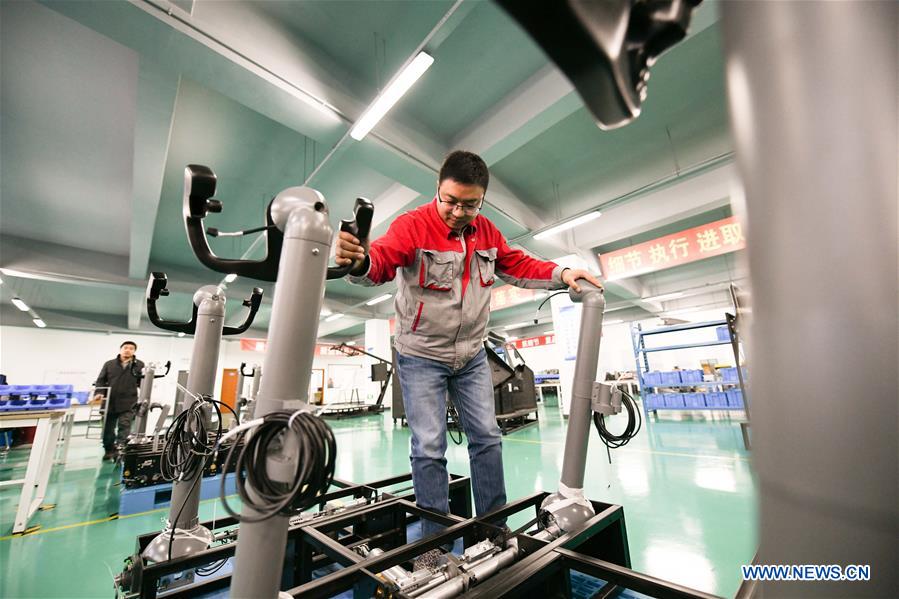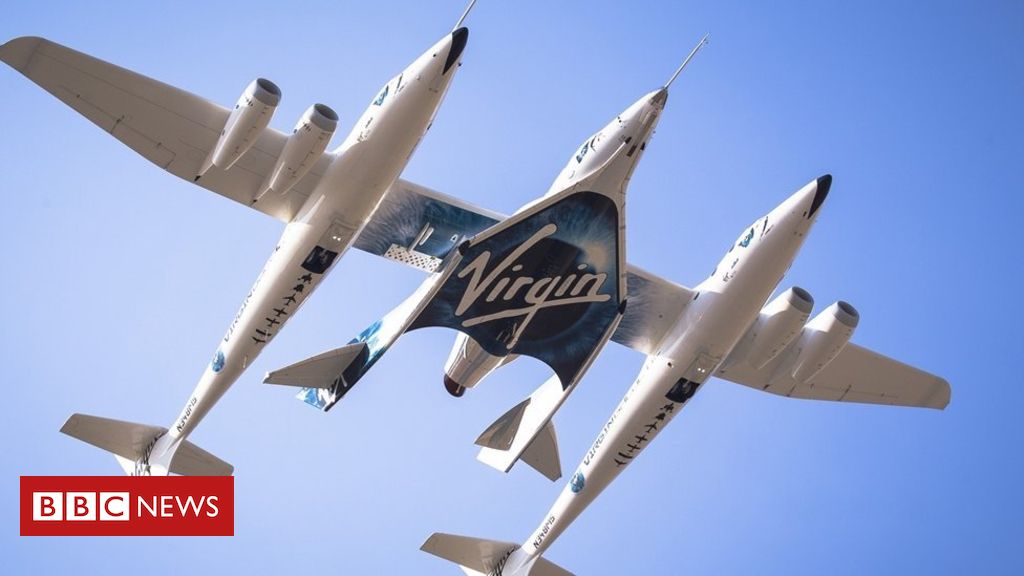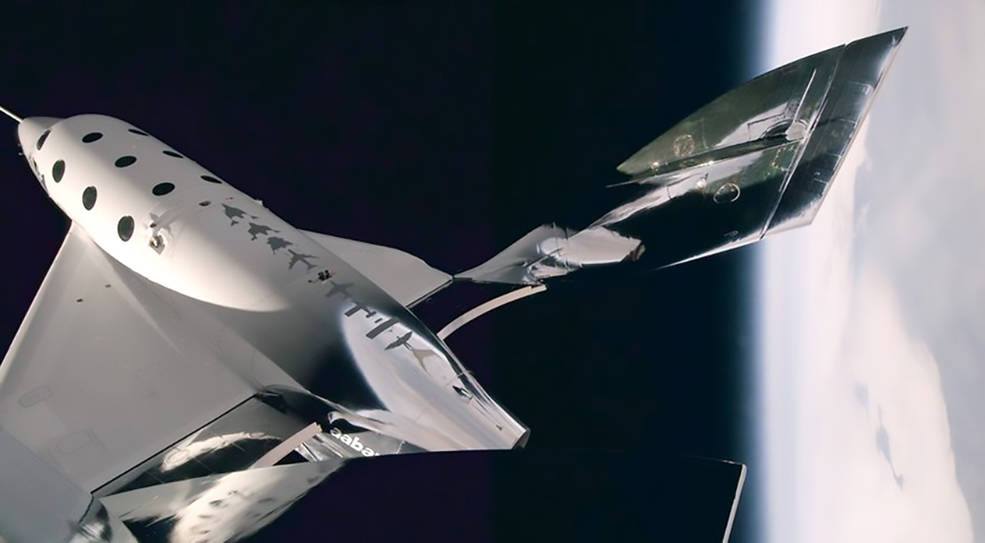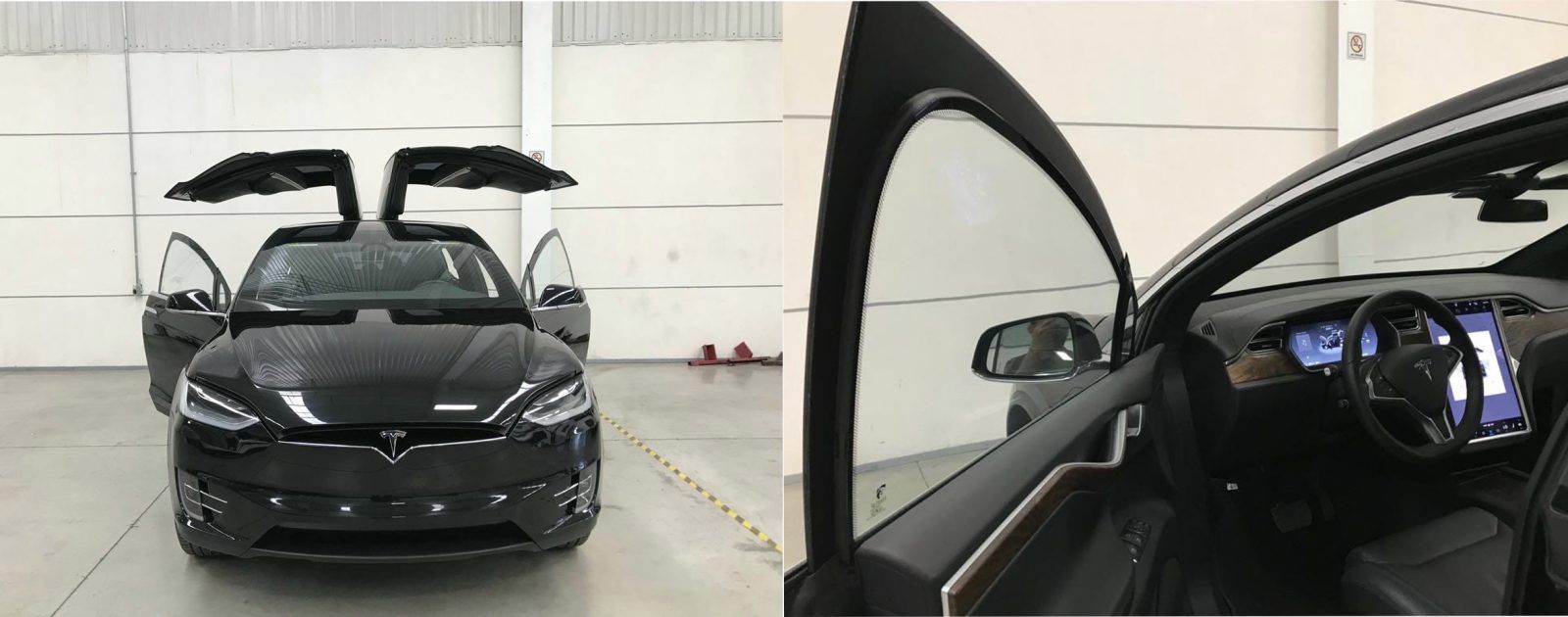Fu Qiang examines flight simulator cockpit parts at Wright Brothers Science and Technology Development Co., Ltd. in Harbin, northeast China’s Heilongjiang Province, Dec. 14, 2018. If it were not for a common infatuation with flight simulation, chances are that Liu Zhongliang, Fu Qiang and Zhou Zhiyuan, who had once led three entirely distinct careers, might never come across one another, let alone team up and approach an aviation dream. The aviation enthusiast trio launched their hardware developing team in 2009. From the very first electronic circuit, to today’s flight simulator cockpits, the core spirit of autonomous design prevailed throughout the course of their venture. In 2014, Liu, Fu and Zhou left Zhengzhou in central China and relocated to Harbin. They were joined by Ge Jun, another aviation enthusiast, entering a business fast track as the four registered their company, named after the Wright Brothers. The prototype of a scale 1:1 Boeing 737–800 cockpit procedure trainer took shape in the same year. And in the year to come, the simulator cockpit was put to standardized production. The company’s products have obtained recognitions at various levels. In November 2016, a refined model of their cockpit procedure trainer obtained technical certification from the China Academy of Civil Aviation Science and Technology, one of the country’s top research institutes in the field. Later, another flight simulator cockpit prototype received Boeing authorizations. One aspiration of the team is to apply for higher-level technical certifications for their simulator cockpits, and become a viable contributor to the Chinese jetliner industry. (Xinhua/Wang Song)








